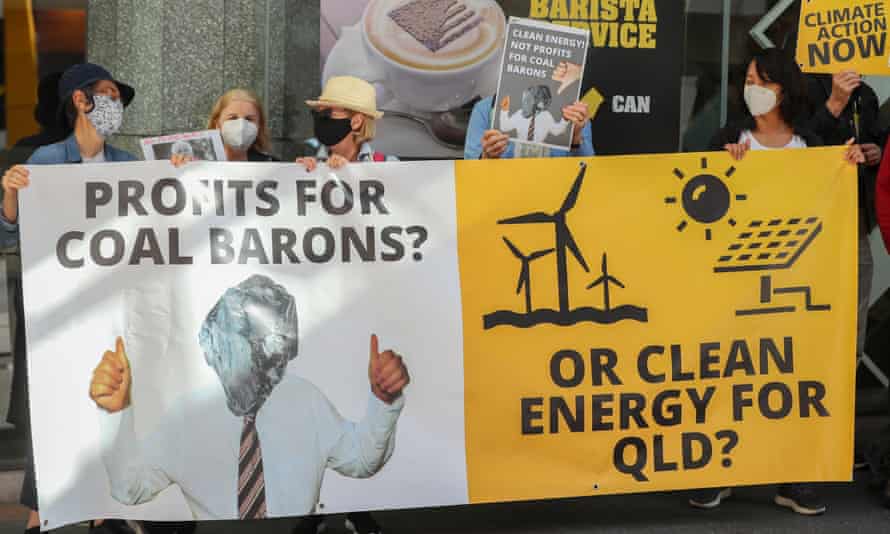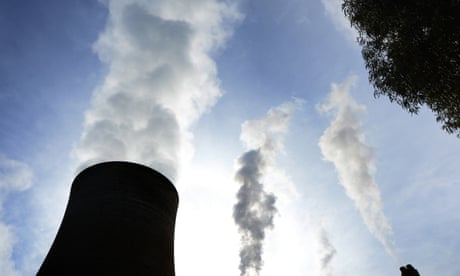Extract from The Guardian
Waratah Coal’s Galilee plant cannot compete with new renewables, according to a Queensland Conservation Council analysis.

Last modified on Thu 30 Sep 2021 18.14 AEST
Electricity produced by Clive Palmer’s remote coal power station would be four times more costly than the current market price, an analysis commissioned by conservation groups claims.
Palmer’s company Waratah Coal has taken the unusual step of lodging a development application for the power station with the Barcaldine regional council, rather than the Queensland government.
While the mayor of Barcaldine has said that it is “peculiar” for a project worth $3.5bn to be left with local government, Waratah insists there is nothing unusual about the process. “This is absolutely a normal process,” a spokesperson for the company has said.

The company has had approval since 2013 to build a massive 40m tonne coalmine 30km north of the tiny town of Alpha – population 335 – and 450km west of Rockhampton.
While Waratah Coal has made no physical progress on the mine, the mining magnate’s company has drawn up plans for a 1.4GW coal-fired power station on an adjacent cattle station.
The Queensland planning minister and deputy premier, Steven Miles, has powers to “call in” the power station proposal. He has publicly expressed scepticism about the project, describing it as a “thought bubble”.
“I try to not get too worried about anything Clive says or does,” Miles told reporters last week.
“It was a while ago now he announced we’re to be getting a Titanic, we still don’t have a Titanic. It was a while ago he announced we’d be getting a dinosaur park, we still don’t have a dinosaur park.”
There is concern among conservation groups that seemingly uneconomic coal power proposals could be made viable by politically-loaded government policy, where subsidies or market concessions were offered on the basis the power generated would providing baseload capacity.
The Queensland government says no additional coal-fired generation is needed in the state. Its own fleet of coal-fired power stations, the youngest in Australia, is facing an uncertain future and is forecast to stop paying dividends within two years.
The Queensland Conservation Council report into the Palmer proposal, seen by Guardian Australia, says the assessment documents significantly underestimate the cost to build such a power station.
Waratah Coal has put the cost of the project at $3.5bn. Using the Australian Market Energy Operator’s standard assumptions, the QCC analysis says the likely capital cost would be close to $6.4bn.
The analysis says the cost of power from the proposed Galilee power station would be about $1/kWh. The current market price in Queensland is 25c/kWh.
“In (the last) decade, the capital costs for solar and storage have more than halved, while finance costs for coal projects have increased around the globe. Projected electricity demand growth in Queensland evaporated and rooftop (solar) has massively changed the role for large-scale generation,” the Queensland Conservation Council report says.
“The Galilee power station could never compete with new renewables and storage on price.”
The QCC director, Dave Copeman, said the proposal anticipated Queensland consumers paying more for power and “possibly looking for federal government support to make the proposal feasible”.
He said Aemo reports made it clear Queensland has sufficient generation to guarantee supply until 2030, and that additional investment was planned in wind, solar, batteries and other storage.
“Queensland doesn’t need this power station, our premier has said we don’t need this power station, because it does not make economic or environmental sense for it to go ahead.”
The Queensland government has previously voiced opposition to new coal-fired power proposals on the basis they are not needed and could put the state’s existing stations out of commission – and their staff out of work – earlier than scheduled.
State-run power companies are already looking to potentially wind back coal generation, citing a rapid pivot in the energy market, the low cost of renewables and the difficulty running coal generators in a flexible manner.
Palmer was contacted for comment.
No comments:
Post a Comment